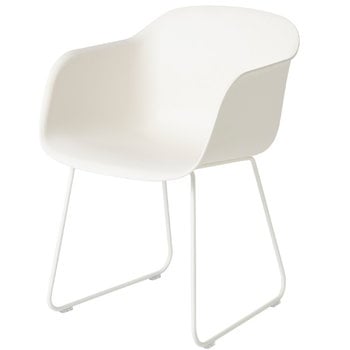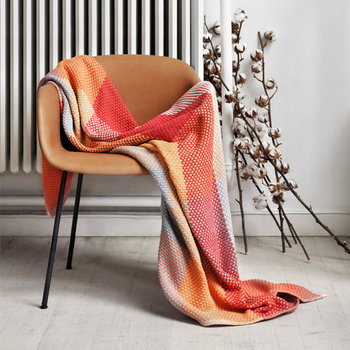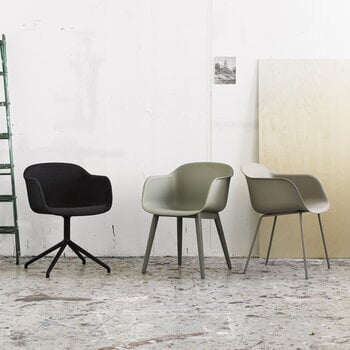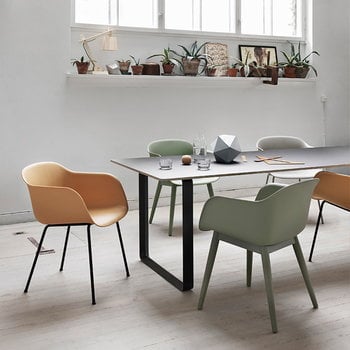The Fiber chair by Muuto is made of an innovative composite material consisting of wood and plastic fibres. When looked closely, one can see the beautiful wood fibres in the shell material. The Fiber chair can be used at home or at the office and it also makes a perfect dining room chair. Choose your favourite from the different base options.
Muuto's popular Fiber chair was designed by Iskos-Berlin. Over the years, the collection has expanded with numerous new models. The simple and classic Fiber chairs have been stripped of all unnecessary layers – the result is a perfect mix of a harmonious look and comfortability. The Fiber collection combines soft curves with an environmentally friendly wood fibre composite, which gives the chairs their distinctive texture and makes them 100% recyclable.











